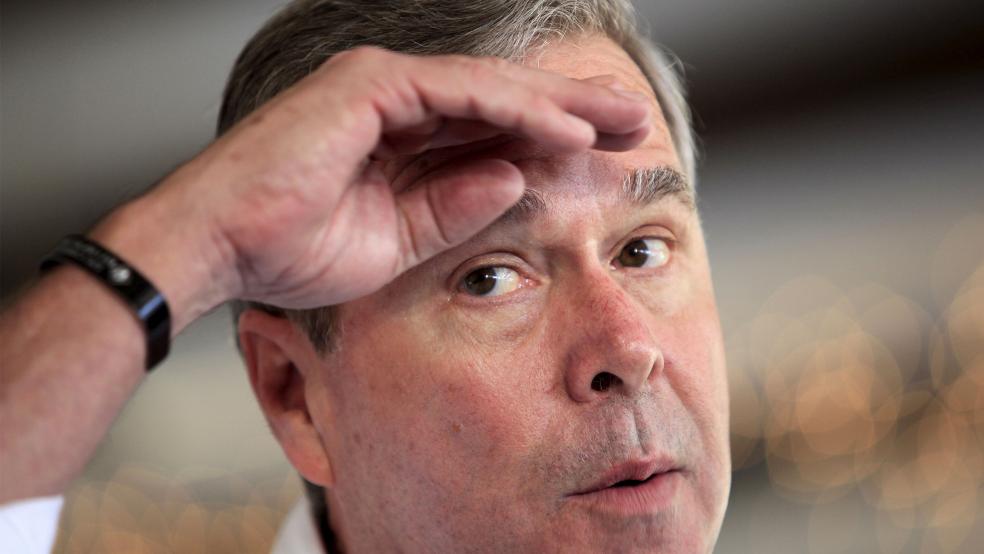Former Florida Governor Jeb Bush dropped out of the Republican presidential primary two days ago, prompting campaign officials and supporters to look for a scapegoat for the debacle. They may have settled on a pricey one, indeed.
Political strategist Mike Murphy, head of the pro-Bush super PAC Right to Rise USA, is under fire for allegedly giving himself a salary and compensation package that totals $14 million.
Related: Jeb Bush Suspends His Campaign After Being Trounced in South Carolina
"He made minimum of $14 million," a Bush campaign bundler told CNN.
The accusation brought a swift response from Murphy, calling it "Absolute bulls---."
"That mystery donor should have the guts to call me and get straightened out," Murphy told the network in an email Monday.
While the details of Murphy's compensation package at Right to Rise aren’t publicly known yet, the figure does raise questions about how the super PAC aligned with the man who was supposed to be the odds-on GOP nominee spent its money.
Related: A Rubio Super PAC Channels Harry Potter to Take on Trump
After raising more than $118 million, Right to Rise USA has somewhere around $3 million left in its coffers. That paltry figure can be chalked up to at least two things. One, the group went big, spending around $56 million on television and other types of advertising as it tried desperately to get Bush out of the corner he’d been battered into by billionaire Donald Trump and Sen. Marco Rubio, a former protégé who is still alive and well in the race for the White House.
But that burned the candle at both ends: the farther and farther down the polls Bush tumbled, the more the super PAC’s fundraising dried up. Right to Rise raked in $379,000 in January, according to the latest FEC filing, with the majority coming in the form of a $250,000 check from one donor.
How a campaign spends its money, its “burn rate,” is one of the easiest indicators of where an effort got off the tracks. Wisconsin Governor Scott Walker dropped out of the race last September in part because he couldn’t break through the Trump din but also because he couldn’t pay all of his expenses, including a payroll that had an $89,000 post for his wife and a communications director at an annual salary of $220,000.
As the post-mortem over the Bush campaign continues, expect to see more obscure political operatives with eye-popping golden parachutes coming in for very soft landings.





